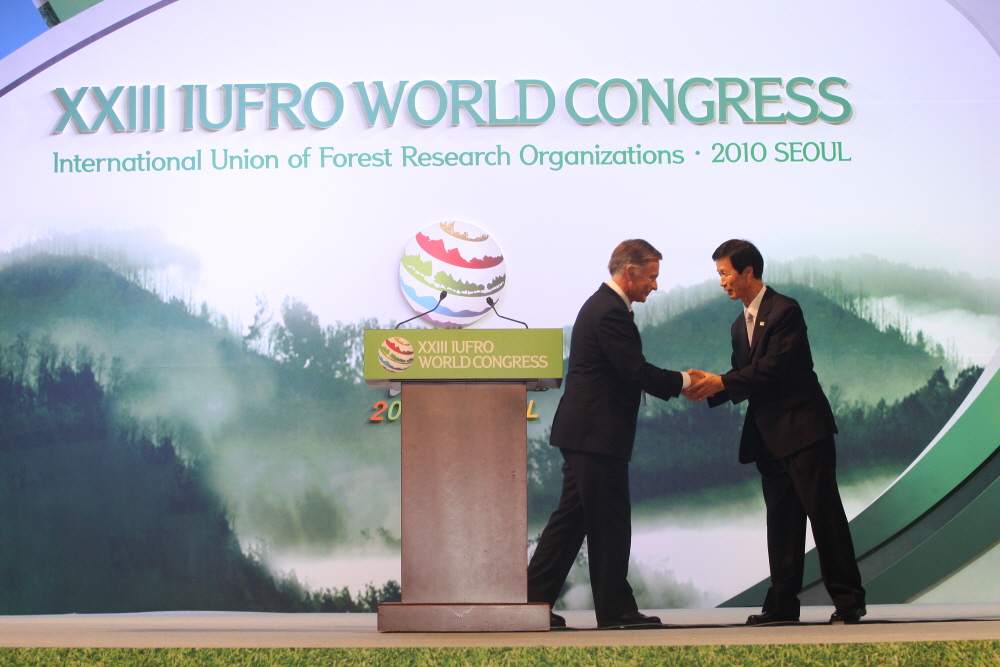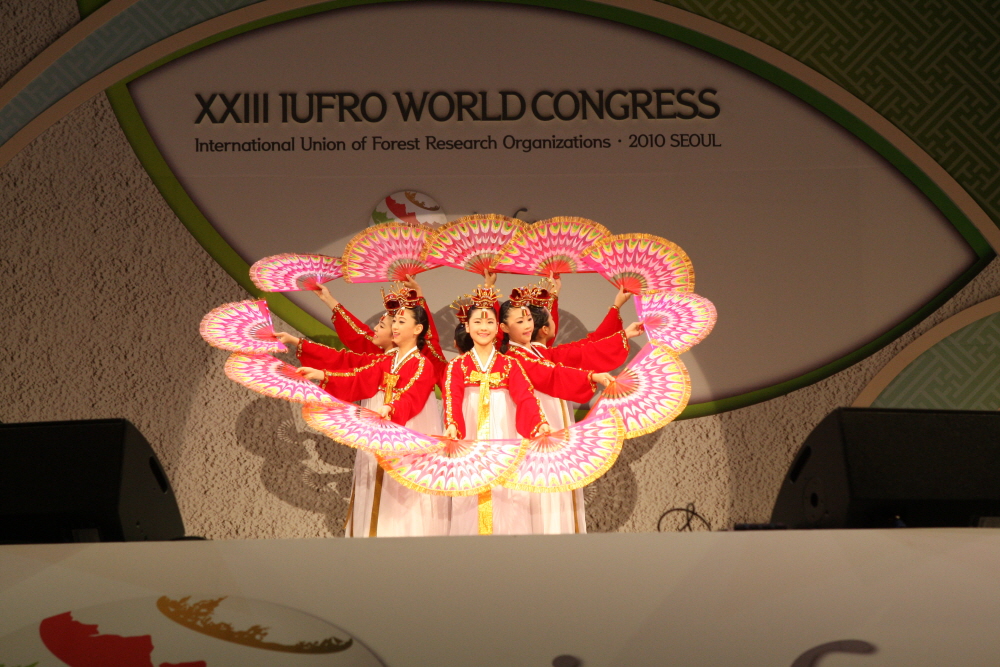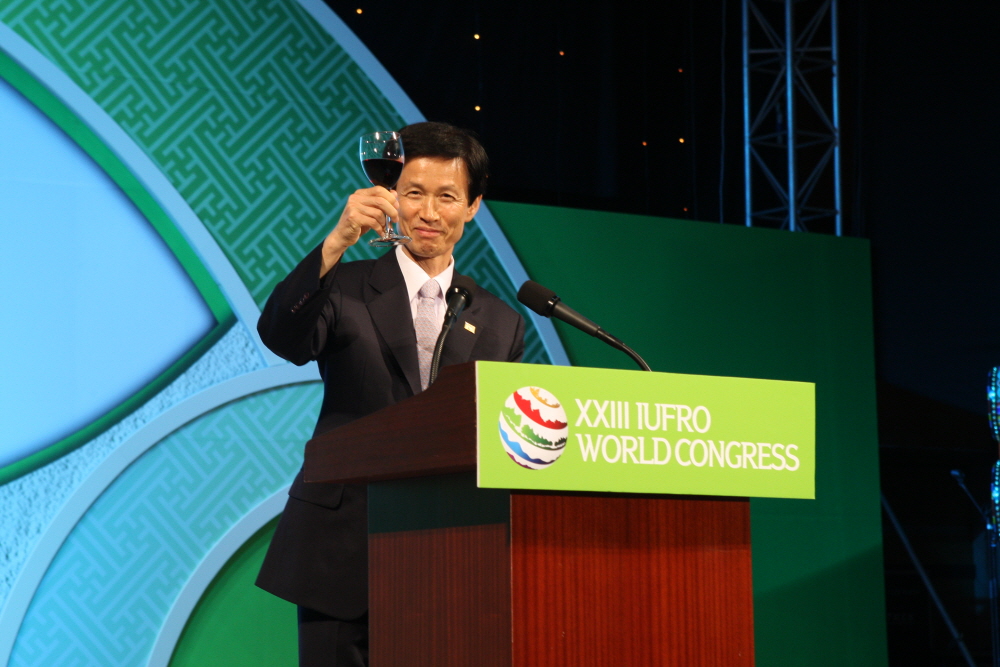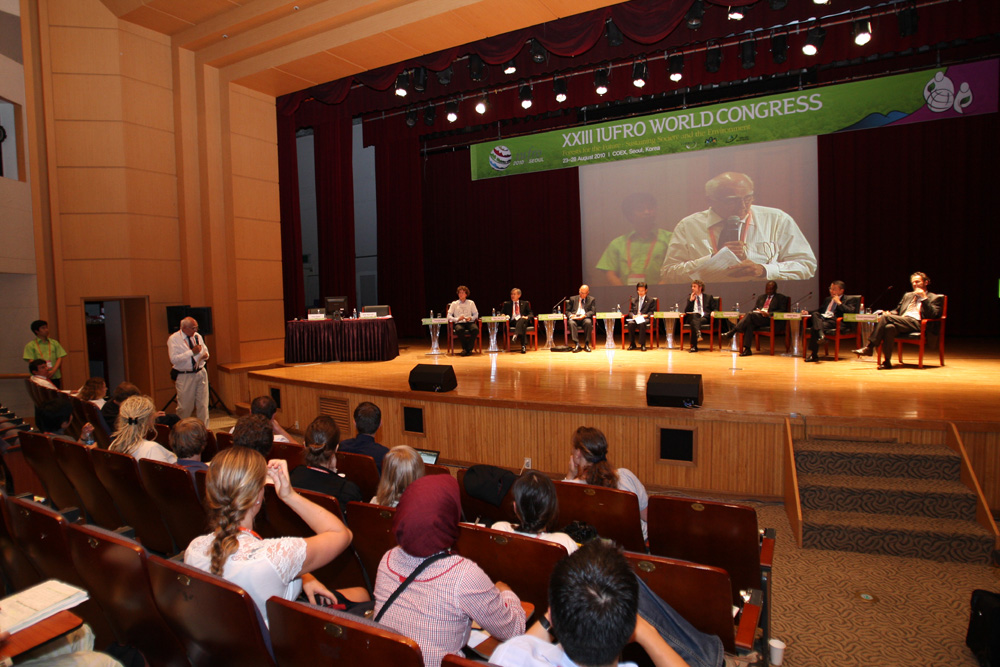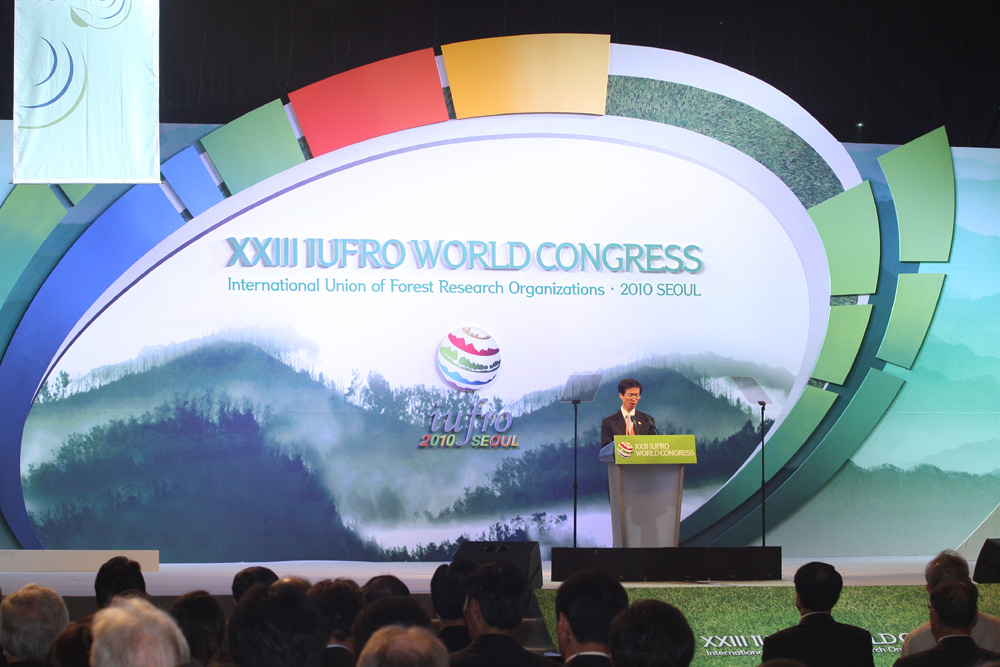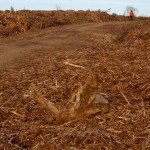XXIII IUFRO World Congress: The Seoul Resolution
In the Seoul Resolution, IUFRO sets its goals for the coming years.
THE SEOUL RESOLUTION
The XXIII IUFRO World Congress “Forests for the Future: Sustaining Society and the Environment” provided a unique forum for presentation and discussion of the results of current global research related to forests and trees. The Congress explored a broad range of current and emerging issues of great importance for the future of forests and their capacity to provide the environmental, economic, social, cultural, and health benefits that sustain rural and urban societies worldwide.
During this historic International Year of Biodiversity, in anticipation of the upcoming International Year of Forests, and recognizing the vital role that forest science must play in meeting the common challenges we face worldwide, IUFRO commits itself to:
Focusing more on scientific research and international collaboration in six thematic areas: Forests for People; Climate Change and Forestry; Bio-Energy; Forest Biodiversity Conservation; Forests and Water Interactions; and Forest Resources for the Future.
Further, IUFRO commits itself to the following goals:
Improving communication within the IUFRO structure, with other scientists, students, forest professionals, and the public; and increasing visibility and accessibility of research findings;
Expanding and deepening IUFRO’s work at the science-policy interface by enhancing scientific contributions to international processes, conventions, and organizations; responding rapidly to new policy issues; expanding partnerships and collaborating with international organizations and processes through the provision of scientific information and policy options;
Urging member institutions and external stakeholders to renew and strengthen forest monitoring activities and support global monitoring efforts;
Improving IUFRO’s capacity to expand its membership and funding base to provide support for the full range of IUFRO’s activities to benefit the forest researchers belonging to IUFRO’s member organizations; and
Promoting high-quality forest-related research and expanding IUFRO’s capacity for interdisciplinary cooperation; strengthening scientific capacity; relating the work of all IUFRO units to the six thematic areas; broadening IUFRO’s membership base; and identifying emerging issues and changing paradigms.
THE SEOUL RESOLUTION – LA RESOLUCIÓN DE SEÚL – LA RESOLUTION DE SEOUL – DIE RESOLUTION VON SEOUL
And the Winner is…
On Saturday, 28 August, the last day of the IUFRO World Congress, the winners of IUFRO’s Best Poster Award were announced. They are:
Div 1 / Pifeng Lei, University of Freiburg, Germany
“Belowground niche separation and productivity in tree species mixtures
Div 2 / Yoshihiro Hosoo, Shinshu University, Japan
“Isolation and analysis of a gene encoding a potassium membrane transport protein from Cryptomeria japonica”
Div 4 / Sungho Choi, Korea University, Korea
“Predicting the changes in forest distribution using the thermal and hydrological indices”
Div 5 / Lee Su-Yeon, Seoul National University,
“Analysis of terpenoids released during the drying process of Cryptomeria
japonica”
Div 6 / Maija Faehnle, Finnish Forest Research Institute, Finland
“Evaluating the use of social information in urban forest planning”
Div 7 / Takahashi Yukiko, The University of Tokyo, Japan
“Genetic diversity of the pathogen of Japanese oak wilt, Raffaelea quercivora, in the gallery bored in an oak tree, and mycaniga of the ambrosia beetle, Platypus quercivorus”
Div 8 / Ahn Young San, Korea Forest Research Institute, Korea
“Historical change in sediment yield in Lake Toro catchment, Kushiro/mire, northern Japan over the past 300 years”
CONGRATULATIONS!
The IUFRO Congress comes to an end…
Saturday was the sixth and final day of the XXIII IUFRO World Congress. After one more round of scientific sessions and administrative meetings, the day’s highlight were the Closing Ceremony and the Farewell Gala Event. Read more about it in Saturday’s Congress Daily.
The participants of the Closing Ceremony heard about the decisions of IUFRO’s International Council, such as the election of the new IUFRO Board and President, the selection of the Congress venue 2014 and the selection of two new Honorary Members.
During the following Farewell Gala Event, there was singing, dancing, cooking and a lot of toasting, as IUFRO bid farewell to host country Korea and Korea bid farewell to IUFRO.
Thank you for this wonderful IUFRO World Congress!
Excursion time!
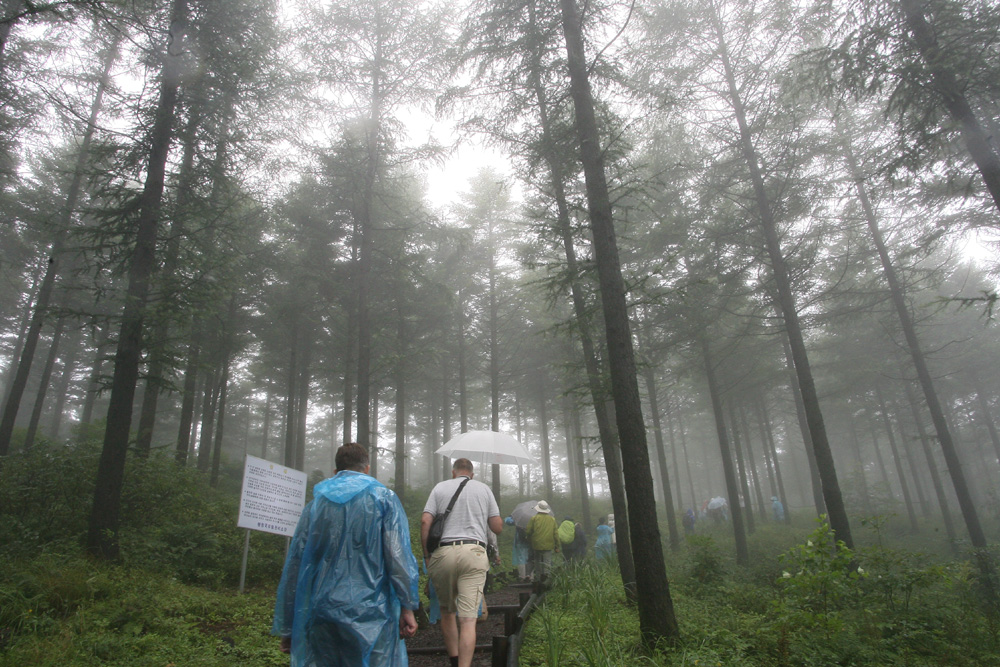 Yesterday, the in-Congress excursions took place: despite rainy weather, over 1,350 delegates on eight tours fanned out across three provinces, to explore a biodiversity area, an experimental forest, a tree breeding facility, a forest education center, an ancient royal forest preserve, a chestnut plantation, a recreational forest, and a once-ravaged, high-altitude area that has been successfully replanted. If you want to know more, read the Thursday Congress Daily.
Yesterday, the in-Congress excursions took place: despite rainy weather, over 1,350 delegates on eight tours fanned out across three provinces, to explore a biodiversity area, an experimental forest, a tree breeding facility, a forest education center, an ancient royal forest preserve, a chestnut plantation, a recreational forest, and a once-ravaged, high-altitude area that has been successfully replanted. If you want to know more, read the Thursday Congress Daily.
This is the first IUFRO World Congress where social media are widely used – if you want to know to what extent, conduct a search for IUFRO on Twitter – you’ll be amazed!
There are also several blogs showing the many aspects a IUFRO World Congress can offer. The following is just a small selection:
- the CIFOR blog
- IISD’s Highlights of the IUFRO World Congress
- le Carnet de Martin Hébert sur le XXIIIe Congrès mondial de l’IUFRO 2010
And the Congress continues…
Three days of the scientific programme of the IUFRO World Congress are already finished and many special events, such as the President’s Discussion and the Directors’ Forum, have taken place.
Apart from hard-core science in sub-plenary and technical session, there have been in-corridor chats, in-corridor dancing and the Bibimbap performance. Visit the Photo Gallery to see all the latest pictures.
Also read the “Congress Daily” for Monday, Tuesday and Wednesday to learn in greater detail what has been g0ing on at the Congress.
And finally, you might want to see what the French Ministry of Agriculture posted on its website about the IUFRO World Congress!
XXIII IUFRO World Congress in its second day
After four days of pre-Congress trainings courses, yesterday’s Opening Ceremony and the first round of plenay, sub-plenary and technical sessions, the XXIII IUFRO World Congress is now well in its second day.
Read a short report of a forestry student and check out the pictures of the Congress picture gallery – enjoy!
IUFRO News Special Issue: Scientific Awards
XXIII IUFRO World Congress
23-28 August 2010
Seoul, Republic of Korea
The International Union of Forest Research Organizations (IUFRO) honours through a variety of awards those who advance science and promote international cooperation in all fields of research related to forestry. At each IUFRO World Congress, the following awards for scientific work are presented:
* Scientific Achievement Award (SAA): Awards will be made for outstanding research published in scientific journals, proceedings of scientific meetings or books, or appropriate patents or other relevant evidence that clearly demonstrates the importance of the nominee’s achievements to the advancement of regional or world forestry or forest research. The SAA will be presented during the Opening Ceremony of the Congress on Monday, August 23.
* Outstanding Doctoral Research Award (ODRA): Awards will be made for path-breaking doctoral dissertations within six years after completion of the dissertation. The ODRA will be presented at a special sub-plenary session “IUFRO Award Winners – the Next Generation” on Tuesday, August 24 where Awardees will participate in a special panel discussion.
* Best Poster Award (BPA): Awards will be made for outstanding poster presentations at the IUFRO World Congress, for quality of research design, presentation of data, organization and neatness of the poster. Special mention of the award winners will be made during the Closing Ceremony of the Congress on Saturday, August 28.
* The IUFRO World Congress Host Scientific Award will be presented for the second time at this Congress: It honours a truly outstanding and accomplished scientist from the Congress host country who has elevated the profile of forest science and research.
The World Congress Host Scientific Award will be presented during the Opening Ceremony of the Congress on Monday, August 23.
* IUFRO Student Awards for Excellence in Forest Science (ISA) will also be presented for the second time: This award recognizes outstanding individual achievements in forest science made by Master’s degree students (or equivalent), and is to encourage their further work within the fields of research covered y the Union. The ISA will be presented at a special sub-plenary session “IUFRO Award Winners – the Next Generation” on Tuesday, August 24 where Awardees will participate in a special panel discussion.
Apart from the Best Poster Award winners, who will be chosen during the Congress, all award winners have already been selected and are presented in the IUFRO News Special Issue on Scientific Awards.
The Healing Effects of Forests
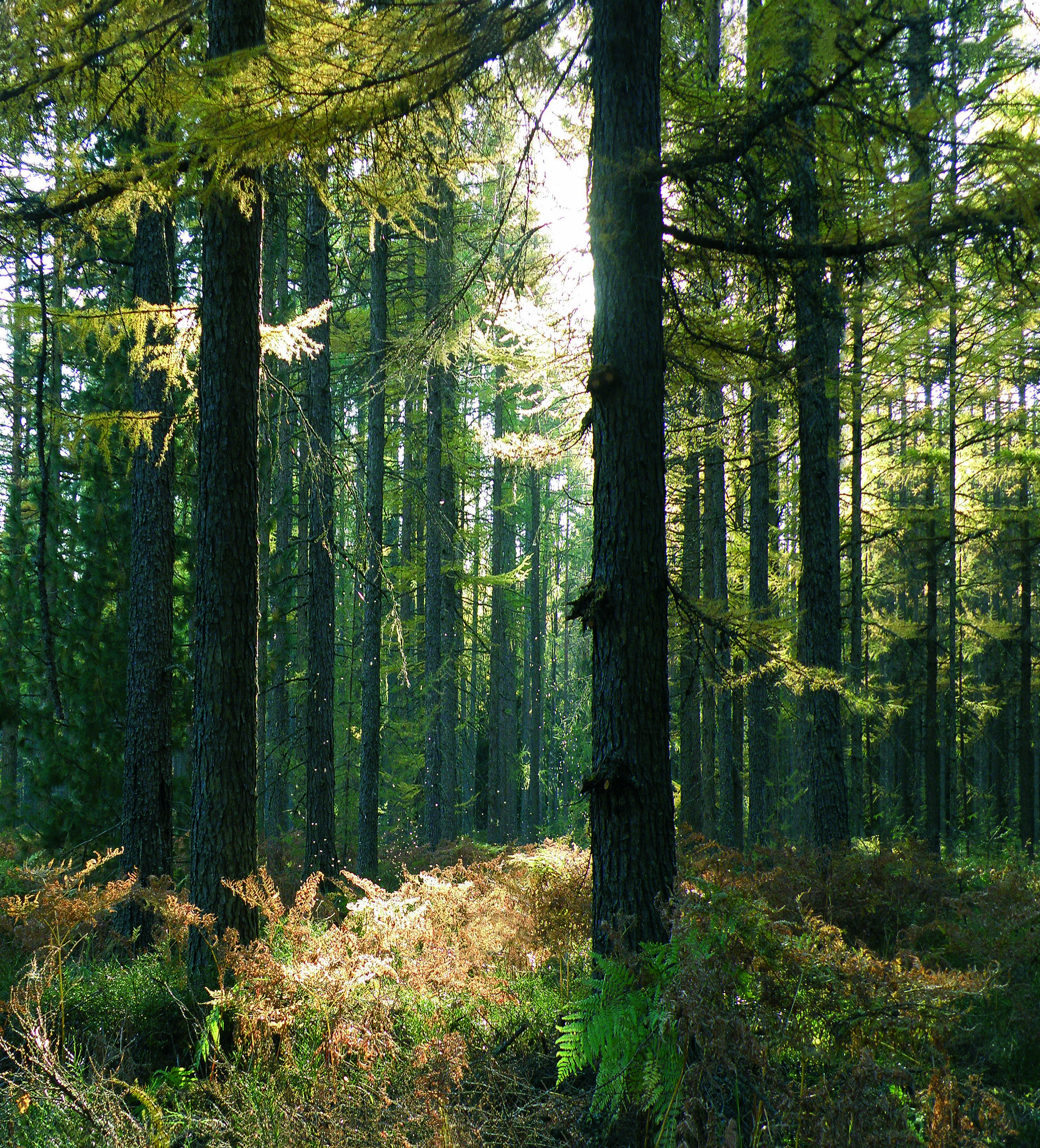 Maybe there’s something to that “hug a tree” idea.
Maybe there’s something to that “hug a tree” idea.
“Many people,” says Dr. Eeva Karjalainen, of the Finnish Forest Research Institute, Metla, “feel relaxed and good when they are out in nature. But not many of us know that there is also scientific evidence about the healing effects of nature.”
Forests – and other natural, green settings – can reduce stress, improve moods, reduce anger and aggressiveness and increase overall happiness. Forest visits may also strengthen our immune system by increasing the activity and number of natural killer cells that destroy cancer cells.
Many studies show that after stressful or concentration-demanding situations, people recover faster and better in natural environments than in urban settings. Blood pressure, heart rate, muscle tension and the level of “stress hormones” all decrease faster in natural settings. Depression, anger and aggressiveness are reduced in green environments and ADHD symptoms in children reduce when they play in green settings.
In addition to mental and emotional well-being, more than half of the most commonly prescribed drugs include compounds derived from nature – for example Taxol, used against ovarian and breast cancer, is derived from yew trees, while Xylitol, which can inhibit caries, is produced from hardwood bark.
Dr. Karjalainen will coordinate a session on the health benefits of forests at the 2010 IUFRO World Forestry Congress in Seoul. “Preserving green areas and trees in cities is very important to help people recover from stress, maintain health and cure diseases. There is also monetary value in improving people’s working ability and reducing health care costs.” she says.
XXIII IUFRO World Congress, 23-28 August 2010, Seoul – Republic of Korea (Promotional Video)
Would You Put a Tree in Your Gas Tank?
The world’s forests may provide some unexpected answers as to how mankind can create more value with less environmental impact – good news as we move toward a greener future.
Putting a tree – figuratively speaking – into your car’s gas tank may be the way of the future. Dr. In-Gyu Choi, associate professor in the department of forest science at Seoul National University, will coordinate a session at the 2010 IUFRO World Congress that will look at the future of forest biomass as raw materials for the development of green biofuels and chemicals.
Forest biomass is renewable, abundant and carbon-neutral. Its importance as a future source of green energy and green chemicals should not be ignored, he says.
The session will involve itself with “look-ahead” science – things such as innovative technologies to convert forest biomass into bioalcohol, synthetic gasoline and diesel as well as the future market possibilities for forest-based green chemicals to be used as the raw materials for biodegradable bioplastics. (Plastics from biomass are made the same way as petroleum-based plastics, but are actually cheaper to manufacture and meet or exceed most performance standards with the exception of water resistance and longevity.)
Eco-efficiency – and this session falls under that broad category – aims at the delivery of competitively priced goods and services that satisfy human needs and improve quality of life, while progressively reducing ecological impacts and resource use intensity to a level compatible with the earth’s estimated carrying capacity.

